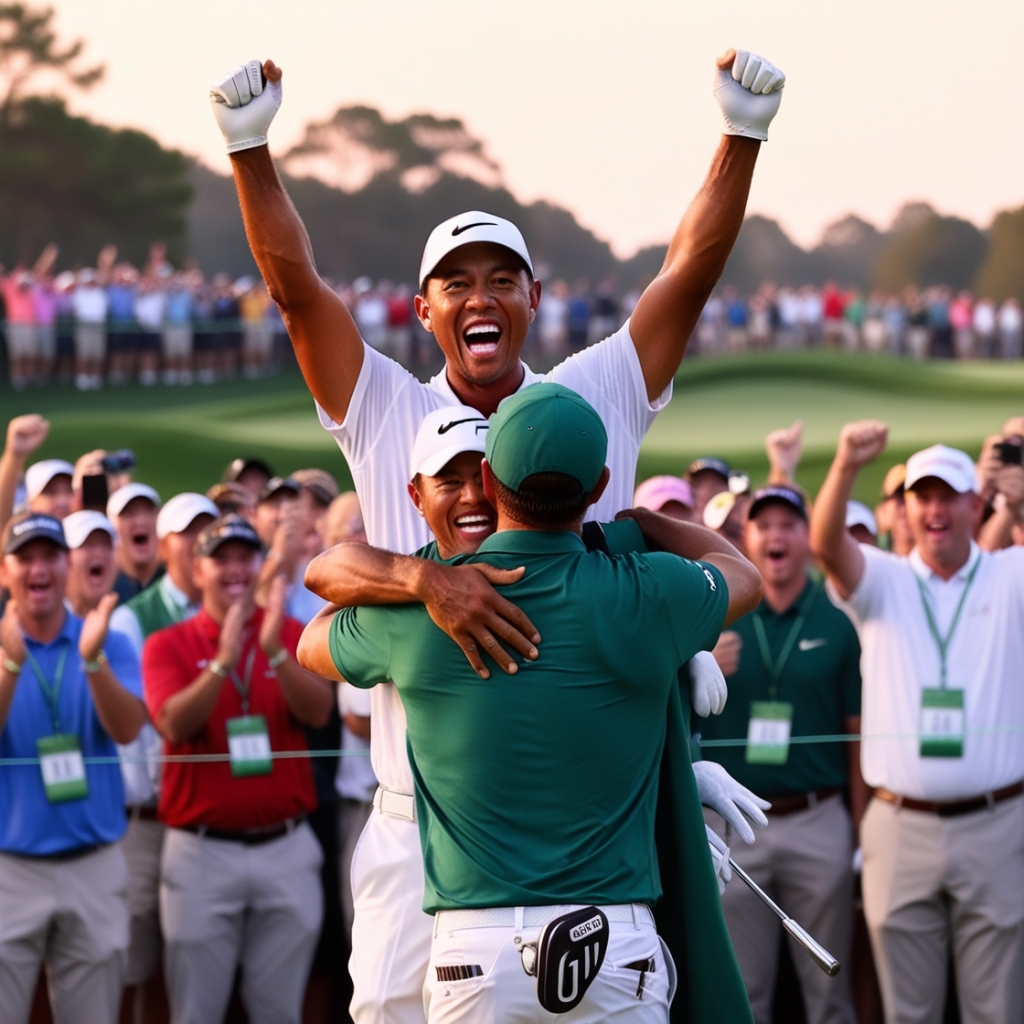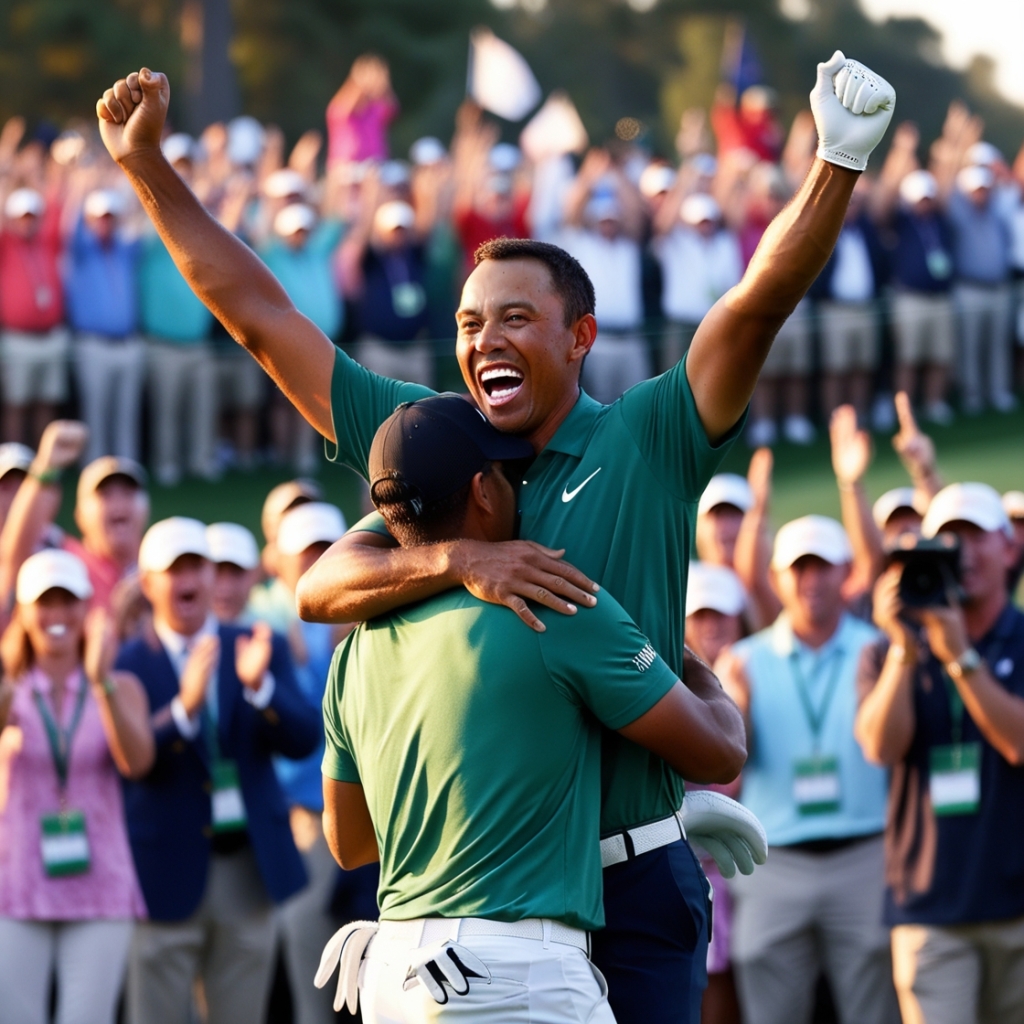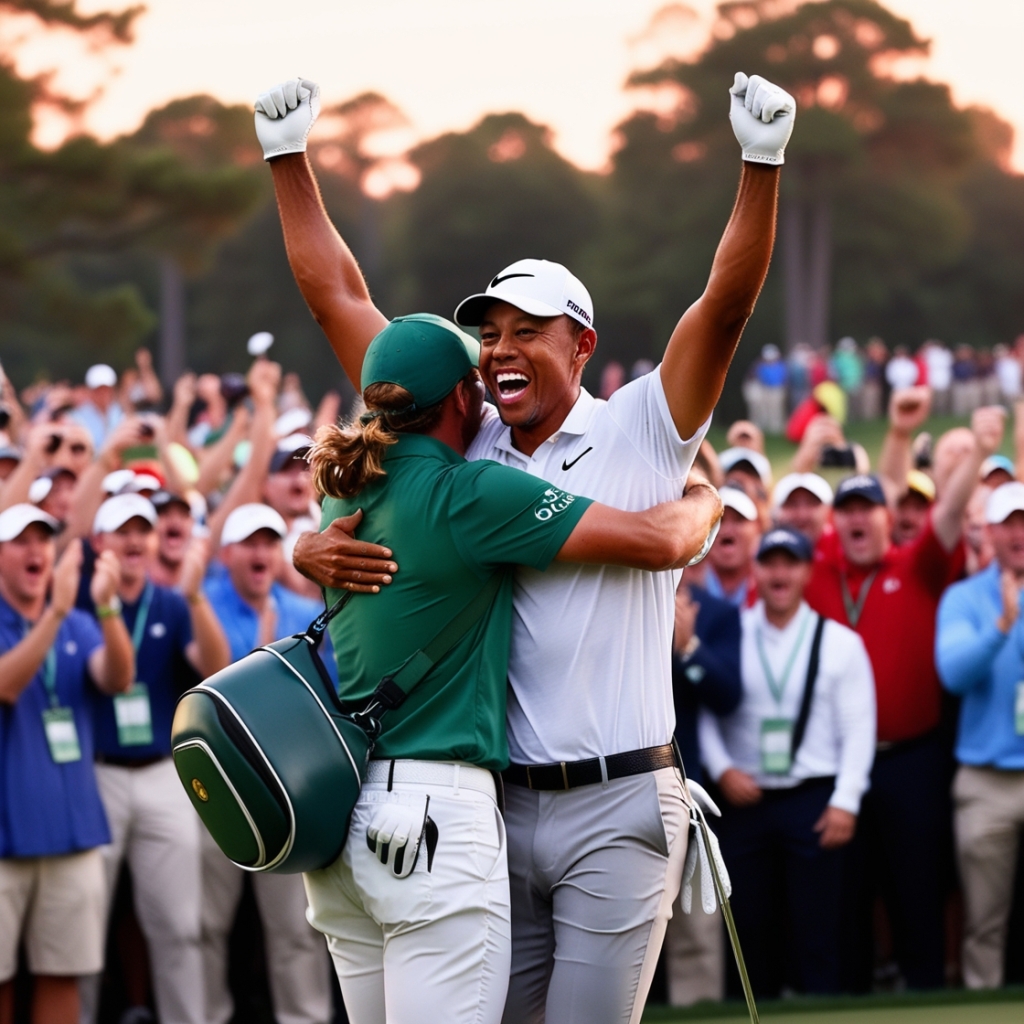Golf, a sport known for its precision, strategy, and rich history, has evolved significantly since its inception. Professional golf, in particular, has grown into a global phenomenon, captivating audiences with its blend of skill, competition, and tradition. In this article, we delve into the history of professional golf, its evolution, and the major championships that define the pinnacle of achievement in the sport.

History and Evolution of Golf
Golf’s origins can be traced back centuries, with roots in games played in Scotland in the 15th century. Initially, it was a leisurely pursuit for the elite, played over natural terrain with rudimentary equipment. As the sport gained popularity, formalized rules were established, and golf clubs began to proliferate across Europe and later worldwide.
The transition to professional golf began in the late 19th century, marked by the formation of golf clubs and the organization of competitive events. The birth of the British Open in 1860, held at Prestwick Golf Club, marked the inception of major tournaments. This event paved the way for the development of other prestigious championships, each contributing to the sport’s evolution and global appeal.
Major Championships
1. The Open Championship (British Open)
Founded in 1860, the Open Championship is the oldest of golf’s major tournaments. Played annually in the United Kingdom, it has a storied history of champions who have left an indelible mark on the sport. The likes of Harry Vardon, Bobby Jones, and more recently, Tiger Woods, have all etched their names into golfing lore by claiming the coveted Claret Jug.
2. The Masters Tournament
Established in 1934 and held at Augusta National Golf Club in Georgia, USA, the Masters is renowned for its picturesque setting and the iconic green jacket awarded to the winner. Golfing legends such as Jack Nicklaus, Arnold Palmer, and more recently, Phil Mickelson and Tiger Woods, have all triumphed at this prestigious event, adding to its prestige and allure.
3. The U.S. Open
Dating back to 1895, the U.S. Open is one of golf’s most challenging tests, known for its demanding courses and rigorous conditions. Held at various venues across the United States, it has showcased the talents of golf’s greatest players, including Ben Hogan, Jack Nicklaus, and Gary Player. Its status as one of the toughest majors to win has cemented its reputation as a true test of skill and perseverance.
4. The PGA Championship
Established in 1916, the PGA Championship is organized by the Professional Golfers’ Association of America. It features a strong field of competitors and is known for producing thrilling moments and unexpected victories. Held at different courses throughout the United States, it has seen champions like Walter Hagen, Sam Snead, and more recently, Rory McIlroy and Brooks Koepka, elevate their careers with victories.
Golf’s Global Impact
Professional golf has transcended national boundaries to become a global sport with a diverse fan base and players from all corners of the world. Major championships serve as platforms for showcasing not only individual talent but also the cultural diversity and rich traditions that enrich the sport. They attract millions of viewers and generate substantial economic impact in host cities, underscoring their significance in the sports world.

The Evolution of Professional Golf: Major Championships and Champions
Golf, a sport known for its precision, strategy, and rich history, has evolved significantly since its inception. Professional golf, in particular, has grown into a global phenomenon, captivating audiences with its blend of skill, competition, and tradition. In this article, we delve into the history of professional golf, its evolution, the major championships that define the pinnacle of achievement in the sport, and the technological advancements that have shaped its modern era.
History and Evolution of Golf
Golf’s origins can be traced back centuries, with roots in games played in Scotland in the 15th century. Initially, it was a leisurely pursuit for the elite, played over natural terrain with rudimentary equipment. As the sport gained popularity, formalized rules were established, and golf clubs began to proliferate across Europe and later worldwide.
The transition to professional golf began in the late 19th century, marked by the formation of golf clubs and the organization of competitive events. The birth of the British Open in 1860, held at Prestwick Golf Club, marked the inception of major tournaments. This event paved the way for the development of other prestigious championships, each contributing to the sport’s evolution and global appeal.
Major Championships
1. The Open Championship (British Open)
Founded in 1860, the Open Championship is the oldest of golf’s major tournaments. Played annually in the United Kingdom, it has a storied history of champions who have left an indelible mark on the sport. The likes of Harry Vardon, Bobby Jones, and more recently, Tiger Woods, have all etched their names into golfing lore by claiming the coveted Claret Jug.
2. The Masters Tournament
Established in 1934 and held at Augusta National Golf Club in Georgia, USA, the Masters is renowned for its picturesque setting and the iconic green jacket awarded to the winner. Golfing legends such as Jack Nicklaus, Arnold Palmer, and more recently, Phil Mickelson and Tiger Woods, have all triumphed at this prestigious event, adding to its prestige and allure.
3. The U.S. Open
Dating back to 1895, the U.S. Open is one of golf’s most challenging tests, known for its demanding courses and rigorous conditions. Held at various venues across the United States, it has showcased the talents of golf’s greatest players, including Ben Hogan, Jack Nicklaus, and Gary Player. Its status as one of the toughest majors to win has cemented its reputation as a true test of skill and perseverance.
4. The PGA Championship
Established in 1916, the PGA Championship is organized by the Professional Golfers’ Association of America. It features a strong field of competitors and is known for producing thrilling moments and unexpected victories. Held at different courses throughout the United States, it has seen champions like Walter Hagen, Sam Snead, and more recently, Rory McIlroy and Brooks Koepka, elevate their careers with victories.
Technological Advancements and Equipment
Technological Innovations
Technological advancements have revolutionized professional golf, enhancing both player performance and viewer experience. One of the most significant innovations is the development of golf balls and clubs using advanced materials and manufacturing techniques. Modern golf balls, for instance, are engineered for optimal distance, spin control, and durability, allowing players to achieve greater consistency and precision in their shots.

Equipment Evolution
Golf clubs have also evolved dramatically over the years. From the transition of wooden clubs to metal clubs and now high-tech composite materials, each generation of equipment has brought improvements in accuracy, forgiveness, and customization options for players of all skill levels. Innovations in club design, such as adjustable hosels and weight distribution systems, enable golfers to fine-tune their clubs to suit individual playing styles and course conditions.
Data and Analytics
The advent of data analytics has further transformed professional golf. Players and coaches now utilize advanced statistics and performance metrics to analyze swings, track progress, and make informed decisions about training and strategy. This data-driven approach has led to more precise coaching techniques and strategic game planning, enhancing the overall competitiveness of the sport.
Strategy and Tactics
Strategic thinking remains paramount in professional golf. Courses are meticulously designed to challenge players with varied terrain, hazards, and weather conditions. Golfers must employ a mix of aggressive and conservative tactics, depending on their strengths, the course layout, and the competition at hand. Mental resilience and decision-making under pressure are also critical factors in achieving success at major championships.
Ethical Considerations in Professional Golf
As professional golf has evolved, so too have the ethical considerations that surround the sport. Integrity, sportsmanship, and fair play are foundational principles that govern competition at all levels, including major championships. Golf’s reputation for honesty and respect for the rules is upheld by players, officials, and fans alike.
Integrity and Sportsmanship
Integrity is at the heart of golf’s ethical code. Players are expected to adhere strictly to the rules of the game and maintain a high standard of honesty in scoring and self-regulation. Sportsmanship dictates that players treat opponents, officials, and fellow competitors with respect and courtesy, regardless of the outcome of the match. The tradition of players calling penalties on themselves, even in the absence of officials, exemplifies the sport’s commitment to integrity.
Respect for the Game and Its Traditions
Golf is steeped in tradition, from the attire worn by players to the etiquette observed on the course. Respect for these traditions is essential to preserving the spirit of the game. Players are expected to uphold these values by demonstrating proper decorum, maintaining the condition of the course, and respecting the rights of other players and spectators.
Fair Play and Rule Adherence

Fair play is a fundamental principle of competitive golf. Players must compete within the boundaries of the rules and regulations set forth by governing bodies such as the USGA and R&A. Any violation of these rules, intentional or not, can result in penalties or disqualification. Maintaining fair play ensures that competitions are conducted on a level playing field, where skill and strategy determine the outcome.
Conclusion
In conclusion, professional golf is more than just a sport—it is a reflection of values that transcend competition. From its origins in Scotland to its global reach today, golf has upheld principles of integrity, respect, and fair play that distinguish it from other sports. The major championships serve not only as showcases of talent and skill but also as platforms for promoting these ethical standards to audiences around the world.
As the sport continues to evolve, maintaining these ethical principles will be crucial in preserving golf’s reputation and ensuring its future growth. By embracing integrity, sportsmanship, and respect for tradition, professional golfers uphold the spirit of the game and inspire future generations to participate with honor and humility.
In a world where sportsmanship and ethical conduct are increasingly valued, golf stands as a shining example of how competition can be both fierce and fair. As we celebrate the achievements of champions past and present, let us also celebrate the enduring values that define professional golf and make it a sport for the ages.



Leave a comment